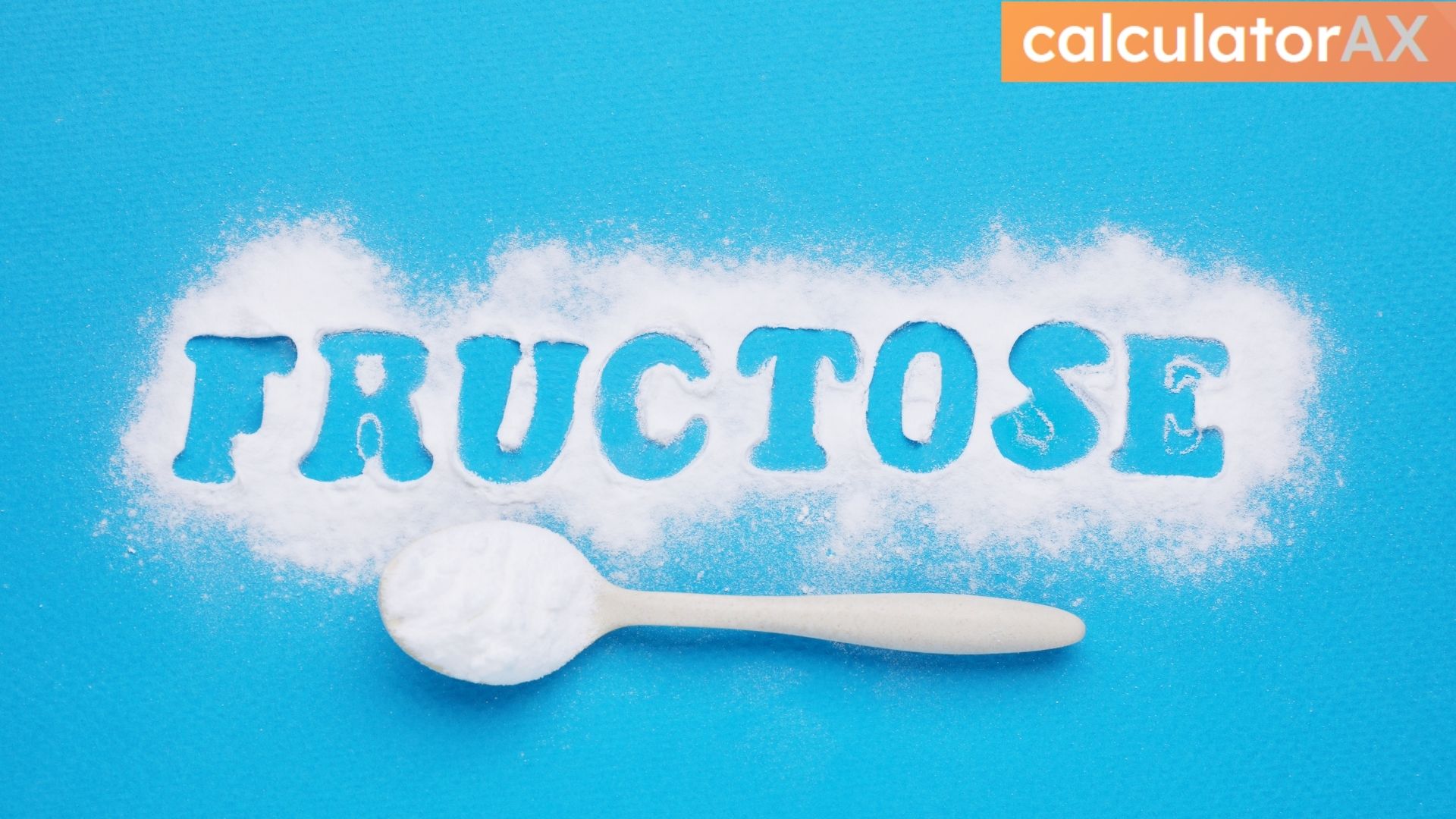Table of Contents
- What Is Fructose, and Why the Concern?
- How to Use Our Fructose Intake Calculator
- Why Should You Monitor Your Fructose Intake?
- How Much Fructose Is Safe?
- Make Informed Choices with Our Fructose Intake Calculator
Last updated: September 27, 2024.

What Is Fructose, and Why the Concern?
Fructose is a type of sugar that, when combined with glucose, forms sucrose—commonly known as table sugar. It’s a major component of high-fructose corn syrup (HFCS), often used to sweeten processed foods and drinks. While it’s naturally found in nutritious foods like fruits and vegetables, excessive consumption, particularly from added sugars, has been linked to obesity, diabetes, and non-alcoholic fatty liver disease.
So, how much is too much? The answer isn’t one-size-fits-all. Factors like your age, gender, weight, and activity level all play a role in determining your ideal fructose intake.
How to Use Our Fructose Intake Calculator
Our easy-to-use calculator helps you understand your recommended fructose intake based on personalized inputs. Here’s how it works:
- Enter Your Details: Fill in your gender, height, weight, age, and activity level.
- Calculate: Click the 'Calculate Fructose Intake' button.
- Get Your Results: See your BMR (Basal Metabolic Rate), TDEE (Total Daily Energy Expenditure), and recommended fructose intake.
The tool will provide you with a personalized daily fructose intake guideline, which you can use to make healthier dietary choices.
Why Should You Monitor Your Fructose Intake?
Fructose in moderate amounts, especially from whole fruits, is generally harmless. However, when consumed in excess from sugary drinks, candies, and processed foods, it can lead to:
| Health Impact | Description |
|---|---|
| Increased Triglycerides | Excess fructose is converted into triglycerides in the liver, which can elevate the risk of heart disease. |
| Insulin Resistance | High fructose levels can contribute to insulin resistance, a precursor to type 2 diabetes. |
| Non-Alcoholic Fatty Liver Disease (NAFLD) | Unlike glucose, only liver cells can metabolize fructose. Large amounts can lead to fat buildup in the liver, resulting in NAFLD. |
Using our calculator, you can avoid these risks by staying within the recommended fructose limits.
How Much Fructose Is Safe?
According to various studies, moderate fructose intake of up to 50 grams per day (or about 10% of total energy) does not pose significant health risks for most people. For reference, one medium apple contains about 10 grams of fructose. The average American diet, however, can easily exceed this limit due to the high consumption of sugary drinks and processed foods.
Make Informed Choices with Our Fructose Intake Calculator
Our Fructose Intake Calculator not only helps you track your daily fructose consumption but also empowers you to make healthier food choices. Remember, it’s not just about avoiding fructose; it’s about understanding its role in your diet and how it affects your overall health.
Try our Fructose Intake Calculator today and take a step towards a healthier, more balanced diet. Knowledge is power, and with the right tools, you can sweeten your life responsibly!
- Harvard Health Publishing "Is Fructose Bad for You?"
- NASM Blog "5 Things to Know About Fructose"
- Rizkalla SW. Health Implications of Fructose Consumption: A Review of Recent Data. "Nutr Metab (Lond)"